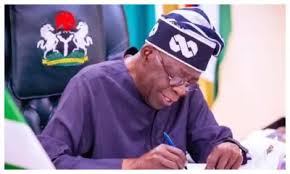Nigeria’s economic challenges have intensified over the past year, marked by rising inflation, an exchange rate crisis, and depleting foreign reserves threatening the economic stability for the nation’s over 200 million residents.
The International Monetary Fund (IMF) has forecasted a sharp decline in Nigeria’s economic ranking and GDP after being the largest economy in Africa in 2022, Nigeria has slipped and is projected to fall to fourth place behind South Africa, Egypt, and Algeria by 2024.
According to the IMF’s World Economic Outlook, Nigeria’s GDP in USD terms has decreased from $477 billion in 2022 to $375 billion in 2023, with an estimated further drop to $253 billion in 2024.
The country has also faced severe exchange rate fluctuations due to the Naira’s two-time devaluation by the Federal Government within a year,and the devaluation has resulted in a loss of at least 55% of the Naira’s value, significantly affecting individual spending power and corporate balance sheets.
The exchange rate for one US dollar has surged from N633 a year ago to N1,483 as of the latest official market rates, having previously reached a high of N1,900 per USD earlier in the year.
Nigerian Govt reels out achievements on trade, investment policies in last 100 days
The Nigerian government has reeled out achievements in trade and investment in the country over the last 100 days, starting...
Read more













 Boss98.9 FM
Boss98.9 FM











